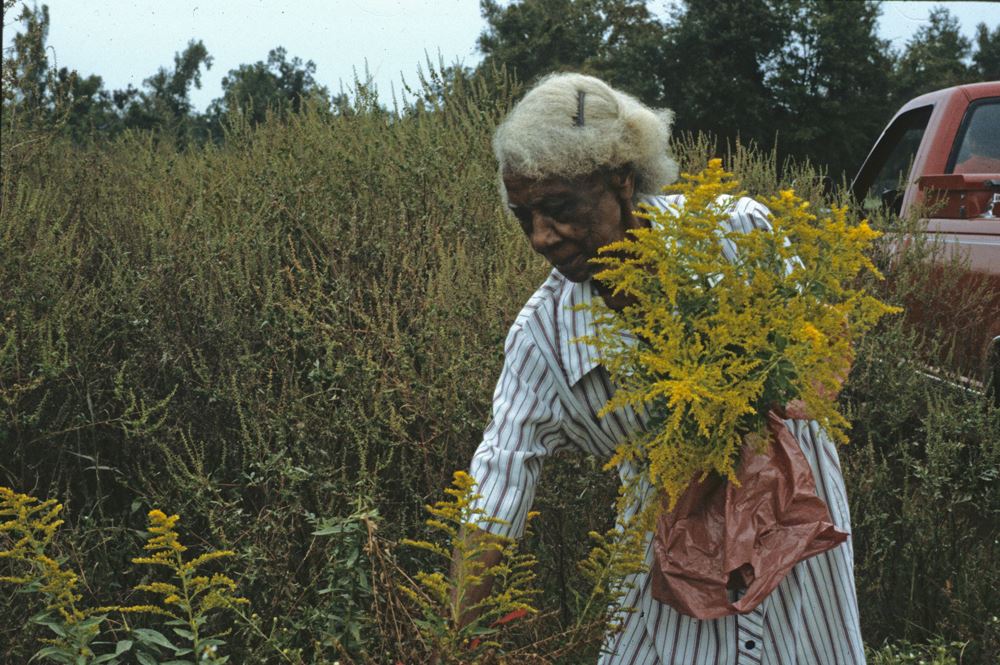"All that we see, everything that is growin' in the earth, is healin' to the nation of any kind of disease." ~Emma Dupree (1897 - 1995)
Emma Dupree was an influential herbalist in Eastern North Carolina. Born Emma Williams, as the daughter of freed slaves on a farm 9 miles east in Falkland, where she was born the Fourth of July, 1897. Early on, her parents Pennia and Noah Williams knew she was nature's child. From the time she could walk, Emma felt drawn to the land. She would roam the woods, plucking, sniffing, and tasting weeds. She grew up that way, collecting the leaves, stems, roots and bark. "The woods gal, that's what they called me. They'd say, ‘here comes that little medicine thing,’" says Ms. Dupree of her time as a child. As an adult, she was known locally (and adorably) as “Aunt Emma” and “granny woman.”
Developing a deep knowledge about curative and preventative uses of plants, especially known for her work with native herbs. Ms. Dupree's "garden-grown pharamacy" included sassafras, white mint, double tansy, rabbit tobacco, maypop, mullein, catnip, horseradish, silkweed and other plants from which she made tonics, teas, salves and dried preparations. These were cultivated in her yard and gathered from the banks of the Tar River.
Ms. Dupree was born to "a tradition of knowing about the curative and preventative uses of the natural pharmacopoeia which grew along the banks of the creeks and branches and the Tar River," says folklorist Karen Baldwin of East Carolina University. "Her kind of folk medicine dates back centuries. In the 1600s, African slaves brought root-doctor remedies to America. Indians and immigrants had cure-alls, too. In some rural areas, scattered herbalists still practice."

A true community herbalist, Ms. Dupree didn’t set a price for her services. Sometimes she would get $5, sometimes $30, and she was happy to accept trades of ingredients she needed for her work such as lemons, vinegar, rock candy, honey, and molasses.
In 1984, Emma received the Brown-Hudson Award from the North Carolina Folklore Society, which recognized her as an individual who made significant contributions to the transmission, appreciation, and observance of traditional culture and folklife in North Carolina. A few years before her passing, she was also awarded the North Carolina Heritage Award, a lifetime achievement recognition for notable traditional folk artists in North Carolina. She was also delighted when at 94, she was made the grand marshal of the local Fountain Christmas Parade.
To learn more about Emma Dupree, watch her 1979 oral history interview here.
And a presentation on her life and work by Alex Albright, MFA, English (retired) on February 24, 2020 here.
| |
Article Written by: Angie Lavezzo |
|
About the Author: Angie Lavezzo is the former general manager of Sow True Seed. Beyond her professional role at Sow True, Angie's passion for gardening extends into personal hands-on experience, fostering plants and reaping bountiful harvests. |
Resources and Further Reading:
Baldwin, Karen. "Emma Dupree, Herbalist." Folk Arts and Folklife in and around Pitt County: A Handbook and Resource Guide. Greenville, NC: East Carolina University Folklore Archive, Department of English, 1990: 67-70.


